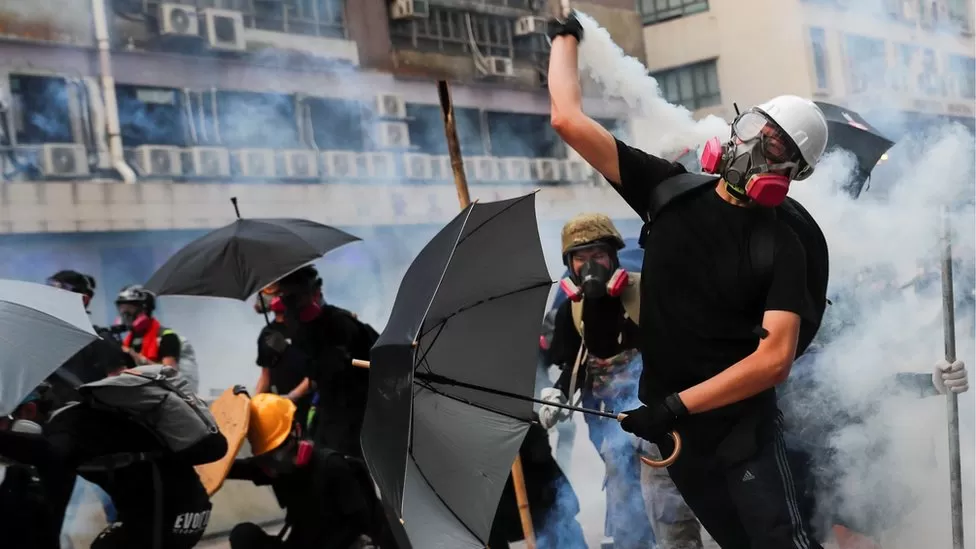The song that served as the unofficial anthem of Hong Kong’s pro-democracy protests in 2019 has been taken down from streaming platforms in anticipation of a court order that could potentially prohibit its circulation.

Photo Credit: BBC
After the government expressed its intention to blacklist the song “Glory to Hong Kong” on security grounds, it swiftly rose to the top of the city’s iTunes chart last week. However, on Wednesday, recordings of the song mysteriously vanished from Spotify and iTunes. The authorities have targeted this tune due to its usage as a substitute for the Chinese anthem at certain events.
The expected ban on “Glory to Hong Kong” is viewed by critics as another indication of Beijing’s crackdown and its ongoing attempts to suppress dissent in Hong Kong against the central Chinese government.
If the song “Glory to Hong Kong” is prohibited, individuals engaged in activities such as broadcasting, performing, selling, or distributing the song, including online platforms, could face charges under the National Security Law of the city.
On Thursday, Spotify provided clarification in response to reports, stating that the song had been removed from the platform by the distributor. The distributor, acting as the intermediary company responsible for licensing the song to music platforms, took the action.
Hong Kong, once a British colony and now a Special Administrative Region of China, is expected to grant its residents broader freedoms in comparison to mainland China. However, advocates argue that democratic liberties have been gradually eroded in recent years.
According to the composer of the song, he had informed the BBC that he did not request the removal of the song. The anthem of the protest movement was created in Cantonese during the demonstrations of 2019.
As a court ban approached, numerous residents of Hong Kong hurried to download the song in recent days.
The court, originally scheduled to deliver its ruling on Monday, postponed the decision when the judge requested the Hong Kong government to provide more precise details regarding the scope of its request.
Over the course of several months, authorities have persistently attempted to eliminate or conceal any presence of the song online. Since 2020, “Glory to Hong Kong” has been prohibited in educational institutions.
Despite the Hong Kong government’s efforts, its requests to Google to remove or reduce the ranking of the song have been unsuccessful.
Searches on the internet consistently present “Glory to Hong Kong” rather than China’s official anthem, “March of the Volunteers,” when searching for Hong Kong’s national anthem.
On Tuesday, the leader of Hong Kong, John Lee, characterized the song as “incompatible with the national interest.” He said that the Hong Kong Special Administrative Region has a responsibility and duty to actively and preventively safeguard national security. However, rights groups argue that the song does not pose a threat to national security.
According to Sarah Brooks, the head of Amnesty International’s China team, using national security as a justification to suppress individuals’ ability to express diverse political opinions is unacceptable.
In a previous incident, a harmonica player was apprehended for performing a song outside the British consulate in Hong Kong as a gesture of mourning following the passing of Queen Elizabeth II.
Following the widespread protests in 2019, China enacted a comprehensive national security law intending to reinstate stability in the city. However, detractors argued that the law was specifically crafted to stifle dissent and diminish the autonomy of Hong Kong.












